BMW iX1 VS Ford Explorer EV
In the evolving landscape of electric SUVs, the BMW iX1 presents a compact yet stylish alternative to the larger Ford Explorer EV. While the iX1 boasts agility and a premium interior that caters to urban drivers, the Explorer EV prioritizes spaciousness and family-friendly features, making it a versatile choice for those seeking adventure. Ultimately, selecting between these two models will depend on your lifestyle needs—whether you favor the nimble luxury of the iX1 or the rugged practicality of the Explorer EV.
BMW iX1
The BMW iX1 stands out as a versatile addition to the electric vehicle market, seamlessly combining compact dimensions with advanced electric technology. Its sophisticated design elements and premium interiors ensure a luxurious driving experience, while the vehicle's performance focuses on delivering both efficiency and agility. With enhanced connectivity features and an emphasis on sustainability, this model represents a significant step forward in BMW's commitment to a greener future.
detailsFord Explorer EV
The Ford Explorer EV marks a significant step forward in the brand's journey towards electrification, offering an impressive blend of performance and sustainability. This modern SUV features a sleek design complemented by advanced technology that enhances the driving experience. With a focus on comfort and innovation, the Explorer EV aims to redefine family travel for the electric age.
detailsBMW iX1 vs. Ford Explorer EV: A New Era of Electric SUVs
The automotive landscape is rapidly evolving, and two prominent players in the electric SUV segment are the BMW iX1 and the Ford Explorer EV. Both models showcase remarkable advancements in technology and innovation while vying for the attention of eco-conscious drivers. Let’s delve into the technical aspects and innovative features of these electric SUVs to understand how they stack up against each other.
Power and Performance
The BMW iX1 offers two power variants: a 204 HP front-wheel-drive model and a more robust 313 HP all-wheel-drive version. It accelerates from 0-100 km/h in just 8.6 seconds for the base model and a sprightly 5.6 seconds for the higher variant, making it a strong contender in the performance department. With a maximum speed of 170 km/h, it delivers sufficient brake horsepower for everyday driving and adventures.
On the other hand, the Ford Explorer EV features multiple power options, ranging from a 170 HP entry-level variant to a powerful 340 HP model. The Explorer EV impressively accelerates from 0-100 km/h in just 5.3 seconds, revealing its sportier edge over the iX1. With a top speed reaching 180 km/h, it provides a thrilling driving experience that caters to those seeking excitement on the road.
Efficiency and Range
When it comes to energy consumption, the BMW iX1 is competitive, boasting consumption ratings of 15.8 kWh/100 km for the base model and 17.1 kWh/100 km for the higher-end variant. The vehicle delivers a respectable electric range, with figures of 463 km for the base and 436 km for the top version, ensuring drivers can tackle longer journeys without frequent charging stops.
The Ford Explorer EV takes efficiency to the next level. Its range is impressive; the highest variant can achieve up to 602 km on a single charge. The consumption ratings also vary, starting as low as 13.9 kWh/100 km, depending on the battery and motor configuration that is chosen. This range of options allows buyers to select a model that best fits their driving habits.
Battery and Charging Technologies
The iX1 utilizes a battery capacity of 64.8 kWh, which supports its versatile performance across different variants. BMW, known for its commitment to innovation, has integrated advanced battery management systems to enhance the charging experience, allowing for rapid charging capabilities.
Conversely, the Ford Explorer EV employs a more diversified battery system, ranging from 52 kWh to 79 kWh, providing potential buyers with various configurations to suit their needs. This flexibility is crucial for consumers who prioritize range and charging speed. Moreover, Ford’s energy-efficient systems help facilitate faster charging times, a significant advantage for modern drivers.
Interior Comfort and Technology
Inside, the BMW iX1 exhibits a premium cabin loaded with advanced technological features, emphasizing a comfortable ride with quality materials. It offers ample space for five passengers and boasts a trunk capacity of 490 L, ideal for both daily use and weekend getaways.
The Ford Explorer EV presents a slightly more spacious interior, comfortably accommodating five individuals with a trunk capacity of 450 L. Ford’s latest infotainment systems, coupled with a user-friendly interface, make it popular among tech-savvy consumers who demand seamless connectivity and sophisticated entertainment options.
Final Thoughts
Both the BMW iX1 and Ford Explorer EV exemplify the strides being made in the electric SUV market. The iX1 shines with its luxury appeal, performance, and BMW's renowned engineering finesse. In contrast, the Ford Explorer EV stands out with its exceptional range and diverse power options catering to a wider audience. As the shift toward sustainable vehicles intensifies, the choice between these two electric SUVs ultimately depends on personal preferences regarding power, efficiency, and brand loyalty.
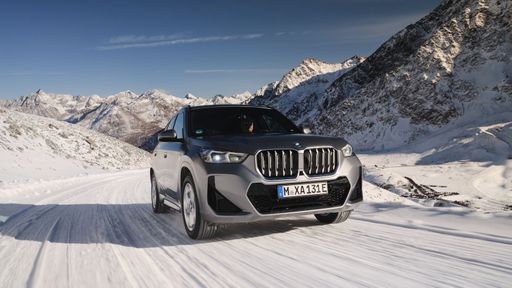 @ press.bmwgroup.com
@ press.bmwgroup.com
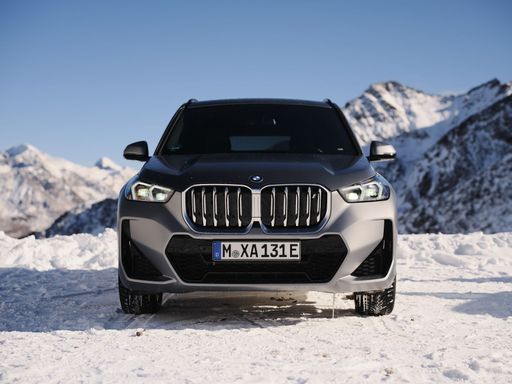 @ press.bmwgroup.com
@ press.bmwgroup.com
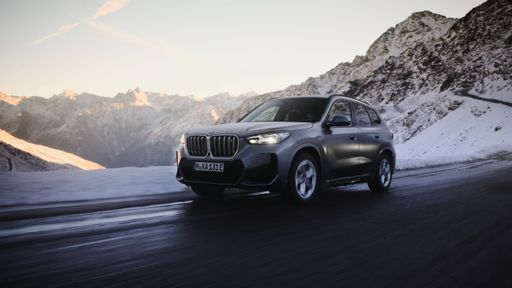 @ press.bmwgroup.com
@ press.bmwgroup.com
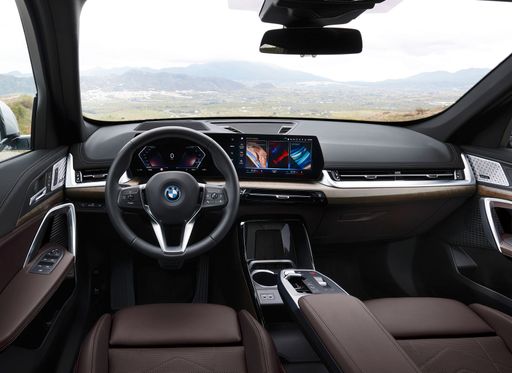 @ press.bmwgroup.com
@ press.bmwgroup.com
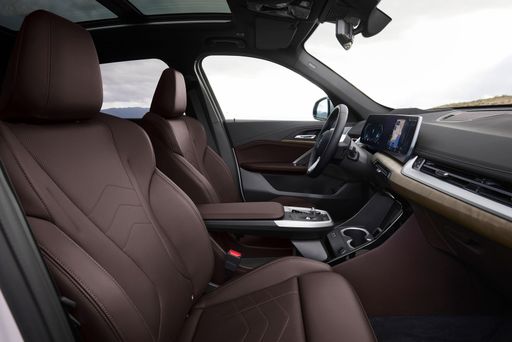 @ press.bmwgroup.com
@ press.bmwgroup.com
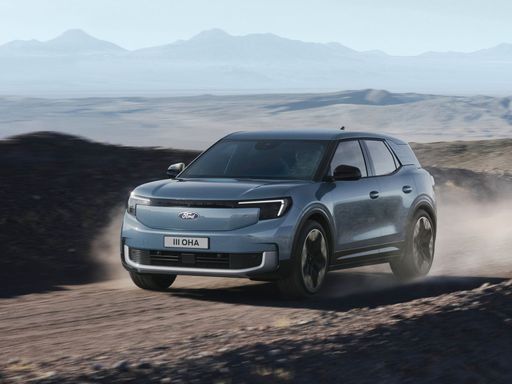 @ electricexplorer.fordpresskits.com
@ electricexplorer.fordpresskits.com
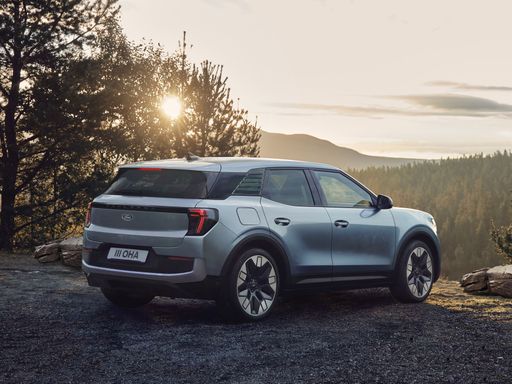 @ electricexplorer.fordpresskits.com
@ electricexplorer.fordpresskits.com
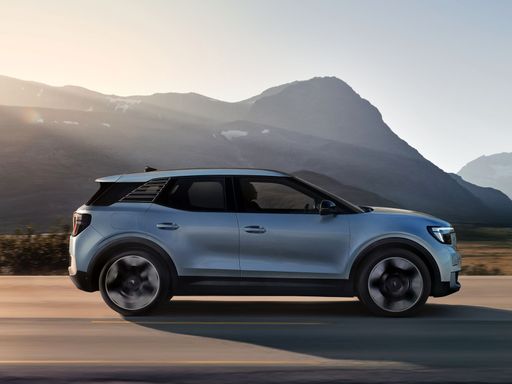 @ electricexplorer.fordpresskits.com
@ electricexplorer.fordpresskits.com

|

|
|
|
|
Costs and Consumption |
|
|---|---|
|
Price
about 41500 - 54100
£
|
Price
about 36400 - 49000
£
|
|
Consumption L/100km
-
|
Consumption L/100km
-
|
|
Consumption kWh/100km
15.8 - 17.1
kWh
|
Consumption kWh/100km
13.9 - 16.6
kWh
|
|
Electric Range
436 - 463
km
|
Electric Range
365 - 602
km
|
|
Battery Capacity
64.8
kWh
|
Battery Capacity
52 - 79
kWh
|
|
co2
0
g/km
|
co2
0
g/km
|
|
Fuel tank capacity
-
|
Fuel tank capacity
-
|
Dimensions and Body |
|
|
Body Type
SUV
|
Body Type
SUV
|
|
Seats
5
|
Seats
5
|
|
Doors
5
|
Doors
5
|
|
Curb weight
1940 - 2085
kg
|
Curb weight
2090 - 2167
kg
|
|
Trunk capacity
490
L
|
Trunk capacity
445 - 450
L
|
|
Length
4500
mm
|
Length
4468
mm
|
|
Width
1845
mm
|
Width
1871
mm
|
|
Height
1616
mm
|
Height
1630 - 1639
mm
|
|
Payload
495
kg
|
Payload
573 - 585
kg
|
Engine and Performance |
|
|
Engine Type
Electric
|
Engine Type
Electric
|
|
Transmission
Automatic
|
Transmission
Automatic
|
|
Transmission Detail
Reduction Gearbox
|
Transmission Detail
Reduction Gearbox
|
|
Drive Type
Front-Wheel Drive, All-Wheel Drive
|
Drive Type
Rear-Wheel Drive, All-Wheel Drive
|
|
Power HP
204 - 313
HP
|
Power HP
170 - 340
HP
|
|
Acceleration 0-100km/h
5.6 - 8.6
s
|
Acceleration 0-100km/h
5.3 - 6.4
s
|
|
Max Speed
170 - 180
km/h
|
Max Speed
180
km/h
|
|
Torque
250 - 494
Nm
|
Torque
310 - 679
Nm
|
|
Number of Cylinders
-
|
Number of Cylinders
-
|
|
Power kW
150 - 230
kW
|
Power kW
125 - 250
kW
|
|
Engine capacity
-
|
Engine capacity
-
|
|
Top speed
170 - 180
km/h
|
Top speed
180
km/h
|
General |
|
|
Model Year
2022 - 2023
|
Model Year
2024
|
|
CO2 Efficiency Class
A
|
CO2 Efficiency Class
A
|
|
Brand
BMW
|
Brand
Ford
|
BMW iX1
A New Era of Innovation: Meet the BMW iX1
The automotive world has seen a seismic shift towards sustainability and electrification, and BMW has solidified its place in this evolution with the introduction of the BMW iX1. As a fully electric SUV, the iX1 serves as a testament to how luxury, performance, and eco-consciousness can harmoniously blend in the modern automotive landscape.
Exquisite Design Meets Purposeful Engineering
The BMW iX1 is not just an electric vehicle; it's an embodiment of cutting-edge design and technology. With its bold SUV silhouette, the iX1 boasts dimensions of 4500 mm in length, 1845 mm in width, and 1616 mm in height, providing a spacious yet agile presence on the road. Its dynamic aesthetic is complemented by an aerodynamic form that enhances efficiency, offering a drag coefficient that rivals traditional SUV models.
Powertrain and Performance Specifications
Beneath the hood of the BMW iX1 lays an electric motor that signifies the future of automotive engineering. Available variants offer power outputs ranging from 204 to 313 PS (150 to 230 kW). The iX1 comes with either a front-wheel or all-wheel drivetrain, catering to different driving preferences. The xDrive30 variant, in particular, features all-wheel drive, delivering up to 313 PS for those who crave enhanced traction and control.
With a commendable electric consumption of 15.8 to 17.1 kWh per 100 km, the iX1 strikes a fine balance between power and efficiency. Its acceleration stats are equally impressive, with the ability to go from 0-100 km/h in as little as 5.6 seconds. This ensures that while it's eco-friendly, it does not compromise on the exhilaration factor. The vehicle can reach a top speed range between 170 and 180 km/h.
A Journey Without Interruptions: Range and Battery Life
The iX1's battery, boasting a capacity of 64.8 kWh, provides a substantial driving range of 436 to 463 km on a single charge, depending on the variant. This means long road trips are not only feasible but enjoyable, eliminating the range anxiety often associated with electric vehicles.
Comfort and Technological Interior
Inside, the iX1 exemplifies BMW’s commitment to luxury and innovation. It’s a five-seater SUV designed with comfort at its forefront, featuring advanced technological interfaces that enrich the driving experience. The spacious cabin offers 490 litres of boot space, ensuring practicality without sacrificing style.
In terms of monthly costs, owning an iX1 can range between €1,147 and €1,453, considering the zero-emission appeal with a CO2 efficiency class of A.
The Financial Aspect of Sustainability
With a price range from €48,400 to €63,140, the BMW iX1 isn't just a vehicle—it's an investment in sustainable motoring. Factoring in a cost of around 45.9 to 58.1 cents per kilometre, the iX1 offers an economically viable option for the eco-conscious driver.
Conclusion: The Future Is Now
The BMW iX1 stands as a beacon of what the future holds for zero-emission vehicles. With a melding of sustainability, performance, and luxury, it's not just a car, but a glimpse into the next chapter of automotive history.
Ford Explorer EV
Unveiling the Future: The Ford Explorer EV
The all-new Ford Explorer EV makes a bold statement in the electric vehicle market with its amalgamation of cutting-edge technology, expansive features, and forward-thinking design. As Ford moves towards a more sustainable future, the Explorer EV stands out as a prime example of the brand's commitment to innovation and performance.
Power and Performance
Beneath its stylish exterior, the Ford Explorer EV boasts a powerful electric motor offering a range of power outputs from 170 PS to an impressive 340 PS. The vehicle provides either rear-wheel drive or an advanced all-wheel-drive system that ensures optimal traction and stability under diverse driving conditions. Thanks to its rapid acceleration, the Explorer EV races from 0 to 100 km/h in as little as 5.3 seconds, while maintaining a top speed of 180 km/h across its variants.
Battery Efficiency and Range
A major highlight of the Explorer EV is its varied battery options, which define its 'Standard Range' and 'Extended Range' models. With capacities ranging from 52 kWh to 79 kWh, the EV offers an impressive driving range of up to 602 km on a single charge. The electric consumption holds remarkable efficiency, varying between 13.9 kWh/100km and 16.6 kWh/100km, highlighting Ford’s innovation in energy management.
Interior Comfort and Technology
Inside, the Explorer EV exudes comfort with its high-quality materials and a spacious layout that accommodates up to five passengers. The vehicle is available in several trim levels, including the luxurious 'Premium' and 'Limited Edition', each outfitted with state-of-the-art technology. Drivers benefit from an intuitive infotainment system, comprehensive digital displays, and a variety of connectivity options that make every journey pleasurable and efficient.
Safety and Sustainability
Safety remains a priority for Ford, evident in the Explorer EV's suite of advanced safety features. The vehicle is equipped with cutting-edge driver-assistance technologies that work tirelessly to safeguard passengers with features such as adaptive cruise control and lane-keeping assist. Moreover, as a zero-emission vehicle, it proudly boasts a CO2 efficiency class rating of A, underpinning its eco-friendly credentials and Ford’s commitment to reducing the carbon footprint.
Pricing and Availability
The Ford Explorer EV is set to make waves with its competitive pricing. Starting between €42,500 and €57,200 depending on the trim and features, it offers exceptional value for those looking for a high-performing and sustainable SUV. The 2024 model is now available for order and promises to redefine expectations in the electric SUV segment.
Final Thoughts
The Ford Explorer EV embodies a harmonious blend of style, efficiency, and technological innovation. As a harbinger of Ford's electric future, it promises not just to meet but exceed the expectations of modern consumers by delivering an exceptional driving experience that is both versatile and responsible.
